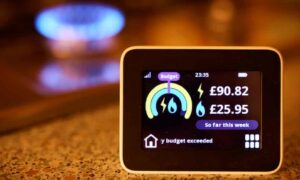
The delayed smart energy meter rollout has failed to meet its targets because ministers have not done enough to convince households of their benefits, according to the public accounts committee (PAC).
The government watchdog called on ministers to set out how they plan to convince the public to take up a smart meter after a “troubled” rollout that began in 2011.
The committee has also urged the government to disclose the costs of the programme, which are ultimately paid for through energy bills, in a report to parliament every year.
The government has pushed back the date by which it hoped that all homes and businesses would have a smart meter three times since it first proposed a deadline of 2019. It currently hopes to reach about 75% of homes and 70% of small businesses by 2025.
Meg Hillier, the Labour MP who is chair of the committee, said: “Some 15 years later and four years after that missed target, and its vision of access and support for every household to control their energy efficiency remains a distant one.”
“On top of this, smart meters have serious reputational obstacles to overcome with the public,” Hillier said, citing reports of people being forced on to prepayment meters.
Late last year it emerged that firms had been remotely switching customers on to pay-as-you-go tariffs through their smart meters. Separately, energy firms have been temporarily banned from physically fitting prepayment meters under warrant.
The committee found that the public has not been convinced by smart meters during a rollout which has left millions of homes with faulty meters.
About 3 million smart meters, almost 10% of those installed, were not working as they should have been by March 2023, according to the report. In addition millions more could be affected when the 2G and 3G mobile communication networks close, it added.
The committee added that the government had not done enough to convince the public of the benefits of smart meters, which can help households make the most of home solar panels, electric vehicle chargers, and time-of-use tariffs, even when they do work as they are supposed to. The meters are also promoted as a method to help cut consumer bills and carbon emissions.
Hillier said: “The government must now get on to the front foot and explain how it is going to sell this troubled programme to the public – and how it will successfully deliver during a cost of living crisis for those it ought to benefit the most.”
The committee urged ministers to work more closely with Smart Energy GB, the body set up to drive the uptake of smart meters, in order to boost the reputation of the programme and increase public interest.
